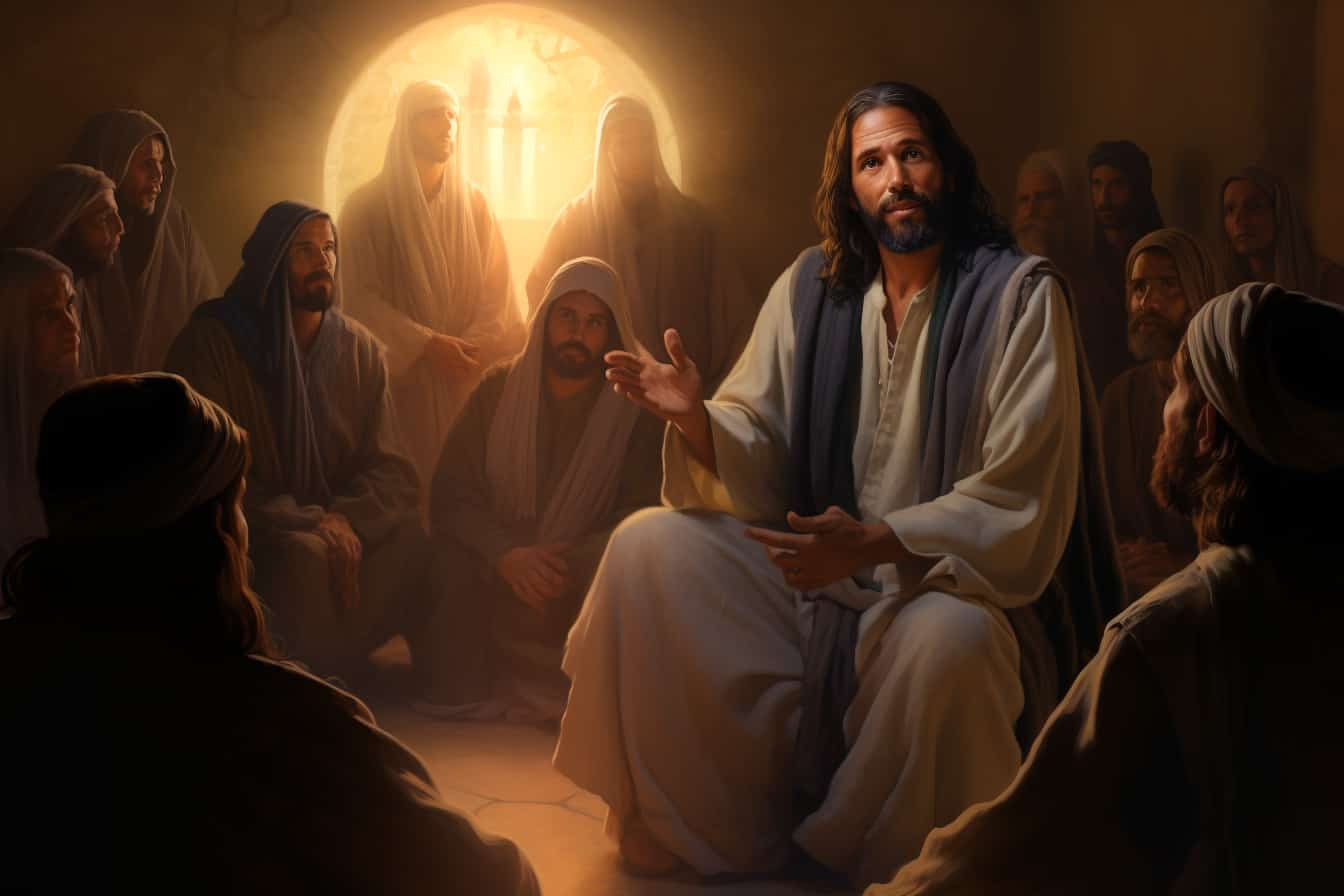Discover Jesus \ Events \Jesus Discusses Marriage and Divorce
Tag
Jesus Discusses Marriage and Divorce
Jesus avoided the Pharisees' debate on divorce, criticizing laws that favored men and trivialized marriage dissolution. He advocated for marriage as a vital social institution, emphasizing respect and equality, and saw divorce as a necessary safeguard.

Table of Contents
Summary
In Jericho, Jesus avoided a debate with Pharisees seeking to trap him on divorce laws, despite his opposition to their practices which he found unjust, especially towards women and children. His critique highlighted that Pharisee laws unfairly favored men, allowing them to dissolve marriages for trivial reasons.
That evening, Jesus praised marriage as the highest human relationship and essential for societal stability, advocating for respect and a significant role for women and children within the family. He clarified that marriage is a substantial human achievement, evolved over millennia, and should not be viewed as a divine ordinance. Addressing divorce, Jesus suggested it as necessary to avert worse societal outcomes, advocating for realistic marriage expectations and gender equality.
Pharisaic Laws and Divorce
Jesus stopped in Jericho on his way to Judea on Wednesday, March 1, 30 CE, followed by a company of almost fifty individuals. That night, a group of hostile Pharisees attempted to engage Jesus in a debate about divorce, hoping to trap him into contradicting local customs. Jesus declined to argue, though he was clearly opposed to the prevailing divorce practices among the Jerusalem Jews, which he found unjust, particularly towards women and children.
The Pharisaic laws favored men, providing them with means to dissolve marriages for trivial reasons, distorting the true intent of Mosaic statutes. Jesus criticized these interpretations for undermining the sanctity of the marital bond and leading to grave injustices. He underscored the misuse of Mosaic law to justify easy divorces that the Pharisees claimed they deserved.
Jesus Talks About Marriage
That evening, Jesus delivered a discourse on marriage, extolling it as the highest human relationship and the cornerstone of a well-functioning society. He emphasized the sanctity of marriage, comparing its societal indicators to signs of an advanced civilization. Jesus advocated for respect towards marriage, elevating the status of women and children and recognizing the home as a fundamental institution of human society.
In private discussions with his apostles, Jesus reiterated the honor and desirability of marriage. He distinguished his personal circumstances from the divine endorsement of marriage, noting the universal directive for men and women to create homes for raising children. He illustrated that understanding God’s love becomes more profound through the responsibilities of parenthood.
Blessing of Children in Jericho
Before breakfast the next morning, scores of mothers brought their children to be blessed by Jesus. Despite the apostles' initial resistance, Jesus rebuked them and welcomed the children, underlining the spiritual lesson that entering the Kingdom of Heaven requires the innocence and receptivity akin to that of a child. He blessed the children and offered words of encouragement to their mothers, illustrating his respect for their role and the spiritual potential of their children.
Further, Jesus used these interactions to teach broader lessons about spiritual growth, beauty, and worship. He spoke about the importance of growing up spiritually in a manner that reflects the physical growth of children, advocating for the appreciation of natural beauty as a pathway to worship. Jesus preferred worshiping in natural settings, which he found more conducive to genuine spiritual communion than ornate or artificially embellished environments. He stressed that places of worship should inspire beauty and simplicity, fostering an atmosphere where even children feel the spiritual warmth and invitation to grow in their understanding of the divine.
Marriage is a Human Institution
Jesus maintained that marriage, while a significant achievement of human evolution, is a civil institution, not a sacrament, shaped over millennia by societal norms rather than divine decree. He encouraged seeing marriage as a serious commitment, supported by community preparation and education to strengthen the union and reduce the incidence of divorce.
Marriage is a highly valued human institution, not a divine sacrament, and should not be considered indissoluble. The fact that marriages can dissolve shows that they are not ordained or bound by God.
Is Divorce a Sin?
Addressing the issue of divorce, Jesus suggested that while it is not ideal, it serves as a necessary option within society to prevent worse outcomes when marriages fail. He rejected the notion of marriage’s indissolubility as a divine command, advocating instead for a realistic approach to marriage as a relationship supported by mutual effort and divine blessing. Jesus never sanctioned any divorce practice which gave men any advantage over women; he accepted only those teachings which accorded women equality with men.
Suggested Reading from this Essay

Related People
Abner
Chief of John's apostles
Jesus
Son of God, Son of Man. Creator Son of the Universe.
The Twelve Apostles
The chosen followers of Jesus.
Related Topics
Accidents and Divine Intervention
Divine wisdom balances accidents, free will, growth.
Angels – the Daughters of God
Aiding humans in a variety of ways.
Marriage, Divorce, and Children
Jesus had important views on marriage, divorce, and child-rearing.
Related Locations
Philadelphia
A city that was friendly towards Jesus
Contributors
Gregg Tomusko, Mike Robinson, Gary Tonge
